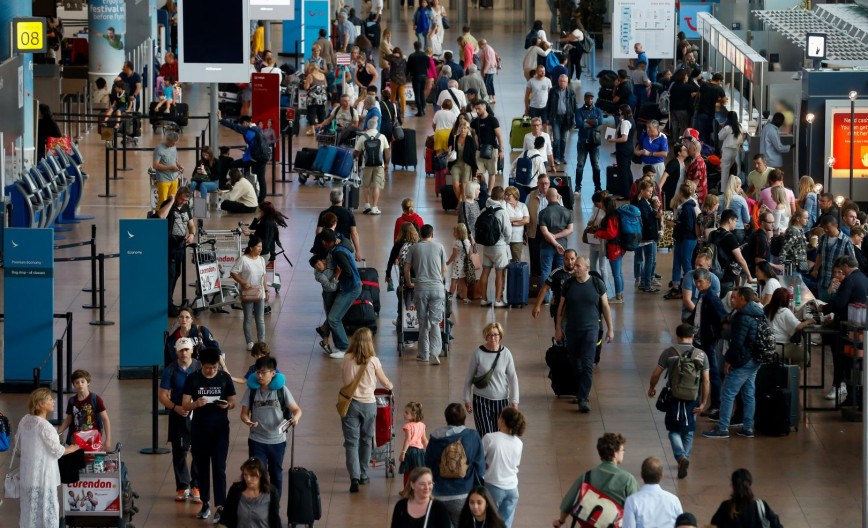International travel played a major role in starting the second wave in Europe last summer, as more than half of the Covid-19 strains that circulated were only introduced after 15 June, a recent study found.
Most new strains only began to circulate in the summer, which led to a second wave that was "more deadly and difficult to control than the first" across Europe, the team of Professor Philippe Lemey (KU Leuven) and Simon Dellicour (ULB) showed.
The study, 'Untangling introductions and persistence in COVID-19 resurgence in Europe,' was published in Nature, and reconstructed the distribution of newly introduced virus strains, using data from ten countries: Belgium, France, Germany, Italy, the Netherlands, Norway, Portugal, Spain, the United Kingdom and Switzerland.
The lower the infection rates were in a given region, the greater the impact of newly introduced strains was, found the researchers, who compared this phenomenon to a forest fire.
"If there are already many small fires in a forest, a few extra sources of fire make little difference: the fire will spread anyway," they said. "But if there are only a few fires here and there, then new fires have a much bigger impact on the end result."
Related News
- 'Two hours earlier': travellers warned of time difference on Belgian Covid certificate
- EU failed to protect air passengers' rights during pandemic
- Belgium's free PCR tests for travellers can also be taken by GPs
This way, the introduction of new strains proportionally resulted in fewer infection chains in countries that already had relatively high summer infection rates, such as Belgium, Spain, Portugal and France.
In the United Kingdom, on the other hand, variants quickly made a lot of headway. There, a significant proportion of the introduced cases were traced back to Spain.
The strains that circulated last summer were not variants as we know them today, however, the researchers stressed. "They were not more infectious, but they were rapidly making their way through Europe. So there is a good likelihood that this was caused by all the travelling."
However, the situation will be different this summer, as the vaccination campaigns in the studied countries are in full swing, according to the researchers.
For EU Member States, these campaigns are also part of a broader European strategy in which, among other things, vaccination certificates and regular testing play an important role, they stressed.
Still, the researchers emphasised that vigilance is still required, until everyone has been able to build up sufficient immunity - which will likely not yet be the case for the European population this summer.
Additionally, the researchers warned that it is always possible that new, more infectious variants can circumvent the immunity built up after vaccination or an earlier infection, stressing the need for "a well-coordinated, uniform implementation of European strategies" to avoid a new late summer wave.

